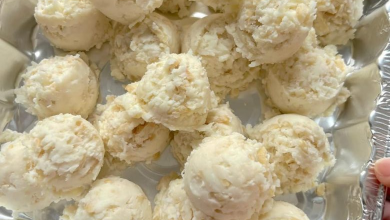The $200 That Changed Everything

It was late afternoon when my neighbor knocked on my door, eyes red and hands shaking. She asked if I could lend her $200. Her son needed medicine, and she was short. I barely make ends meet myself, juggling bills and hoping my card doesn’t get declined, but I handed her the cash. She promised she’d pay me back soon.
Weeks passed. Then months. No message, no knock, nothing.
Then tonight, the walls vibrated with music and children’s laughter. Balloons popped, chairs scraped—the unmistakable signs of a party. A sour knot formed in my stomach.
So she could throw a celebration but couldn’t return the money?
I marched over, rehearsing a lecture about honesty, respect, and how people like us can’t afford to be taken advantage of.
She opened the door, cheeks flushed, eyes wide. We stared at each other for a moment. Then she stepped aside.
Inside, the living room was full of kids. Droopy balloons lined the walls. A slightly crooked cake read: “WELCOME HOME, CALEB – YOU’RE GOING HOME!”
Her son caught my eye immediately. He looked thin, his hair uneven, but he was grinning as he laughed with the other children, holding a paper cup.
Suddenly, my anger melted.
The money hadn’t been wasted. It had gone to chemo, medications, treatments I couldn’t have imagined. The party wasn’t frivolous—it was a celebration. Her child was finally coming home.
“I wanted to pay you back,” she whispered. “But every time I saved a little, something else came up. His counts dropped. He needed another round. I just… had to keep him alive. Today, the kids planned a surprise for him.”
I had nothing clever to say—only a lump of shame in my chest.
Caleb came over and hugged me. “Thanks for helping my mom,” he said.
Later, she handed me a slice of cake wrapped in foil, and a small envelope.
“It’s not the full amount,” she said, voice trembling. “I’ll bring the rest next week.”
Over the next weeks, she repaid me in small increments, apologizing every time. But the debt stopped feeling like money. We grew closer. We shared stories of sleepless nights, tight budgets, and single-parent struggles. I started watching Caleb when she worked late. She returned the favor, brought soup, repaired my broken screen door, drove me when I had no bus fare.
Life didn’t become easy—but it felt less lonely.
One evening, she nervously asked, “I want to start a small cleaning business. Could you help me make a website?”
I hesitated. I wasn’t a web designer, but I had built a simple site for a cousin’s food truck.
We spent weekends battling a glitchy laptop, drinking cheap coffee, and slowly putting it together. She named it Second Chance Cleaning.
“For Caleb. For anyone trying to start over,” she said.
Clients trickled in. Soon she had more work than she could handle. She hired other single moms from our building, sharing childcare and hours. The neighborhood began feeling less isolated—more like a small community looking out for each other.
One client, Mrs. Alvarez, noticed the organization. “Who does your paperwork?” she asked.
“My neighbor,” she replied. “She’s great with numbers.”
Mrs. Alvarez later offered me part-time work managing her rental properties. Steady pay, better than my previous side jobs.
Step by step, life shifted. I replaced my old laptop, fixed the faucet, worried a little less each month. Caleb got a secondhand bike he treasured.
Nearly a year later, my neighbor called, breathless.
“You won’t believe this,” she said. “I won a women-owned business grant—$15,000.”
She used it to expand her team. Then she came by, envelope in hand.
Inside was a check for $2,000.
“This isn’t repayment,” she said firmly. “You believed in me before I believed in myself. I want to help others starting from scratch—people like us. We can do it together.”
I was stunned.
That $200 I had given, while worrying about rent, came back a hundredfold—not just in money, but in opportunity, community, and connection.
Almost nothing good happens if you assume the worst. Sometimes the silence isn’t betrayal—it’s survival. Sometimes kindness takes the long way around. And sometimes, a single act of trust changes far more lives than you could ever imagine.




